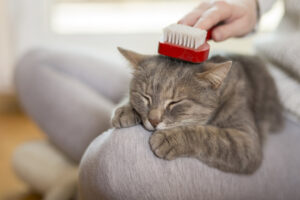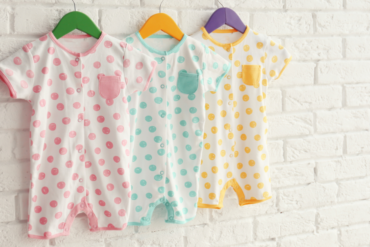Bringing a newborn home is a momentous occasion, filled with joy and excitement. But what happens when you discover that your little one is allergic to your beloved family pet? This situation can be disheartening, as we all want our children to grow up in a loving environment with their furry friends. However, with the right strategies and some adjustments, it’s entirely possible for your newborn and pet to coexist harmoniously, even in the face of allergies. In this article, we’ll explore ways to make life with a pet allergy more manageable and enjoyable.
Navigating Your Newborn’s Pet Allergy with Ease
Understanding Pet Allergies
Allergies in pets are relatively common, and they are typically triggered by proteins found in a pet’s skin cells, urine, and saliva. These proteins, known as allergens, can cause allergic reactions in sensitive individuals. If your newborn is diagnosed with a pet allergy, it’s essential to address the issue with care and consideration.
Consult Your Pediatrician
The first step in managing a pet allergy in your newborn is to consult your pediatrician. They can confirm the diagnosis and help determine the best course of action. Your pediatrician may recommend allergy testing to pinpoint the specific allergen responsible for your child’s reactions. Also keep in mind that if your baby’s allergy is on the severe spectrum, you may need to rehome your furry family member.

Create Allergy-Free Zones
One effective strategy is to establish allergy-free zones in your home. This means designating specific areas, such as the baby’s nursery and playroom, as pet-free zones. These areas should be kept as allergen-free as possible.
Frequent Cleaning
Regular cleaning is crucial when you have a pet and a newborn with allergies. Vacuum carpets and upholstery frequently, using a vacuum cleaner equipped with a HEPA filter to trap allergens. Wash your pet’s bedding and toys regularly and keep these items out of the allergy-free zones.

Groom Your Pet
Grooming your pet is essential to reduce allergen exposure. Regularly brush your pet to remove loose fur and dander. Bathing your pet can also help reduce allergen levels. Consult your veterinarian for advice on the best grooming practices for your specific pet.
Invest in Allergen-Reducing Products
Consider investing in allergen-reducing products designed to minimize the spread of allergens in your home. These may include special air purifiers equipped with HEPA filters, allergen-proof covers for your child’s mattress and pillows, and allergen-reducing cleaning agents.
Designated Pet Areas
Create designated areas for your pet, such as a pet-friendly space that is separate from your baby’s nursery and play area. By confining your pet to these spaces, you can limit allergen exposure to the areas where your baby spends the most time.

Regular Check-Ups for Your Pet
Ensure your pet is in good health by scheduling regular check-ups with your veterinarian. A healthy pet is less likely to shed excessive fur and dander, reducing allergen levels in your home.
Teach Good Hygiene
As your child grows, teach them good hygiene practices. Encourage them to wash their hands after petting or playing with the family pet. This simple habit can help prevent allergens from coming into contact with your child’s sensitive skin and eyes.
Consider Allergen Immunotherapy
In some cases, allergen immunotherapy, commonly known as allergy shots, may be recommended by your pediatrician or allergist. These injections can help build tolerance to specific allergens over time and may be a viable option for managing pet allergies.

Maintain a Clean and Healthy Environment
Aside from managing pet allergies, it’s essential to maintain a clean and healthy living environment for your newborn. Keep up with regular well-baby check-ups, adhere to recommended vaccination schedules, and ensure a safe sleeping environment, free of any potential hazards.
Dealing with a newborn’s pet allergy can be challenging, but it doesn’t mean you have to part ways with your beloved pet. By following these strategies and working closely with your pediatrician and allergist, you can make it possible for your newborn and pet to coexist harmoniously. Your child can still experience the joy and companionship that comes with having a family pet, all while managing their pet allergy effectively. With the right care and commitment, you can create a loving and allergy-friendly home for both your baby and your furry friend.







